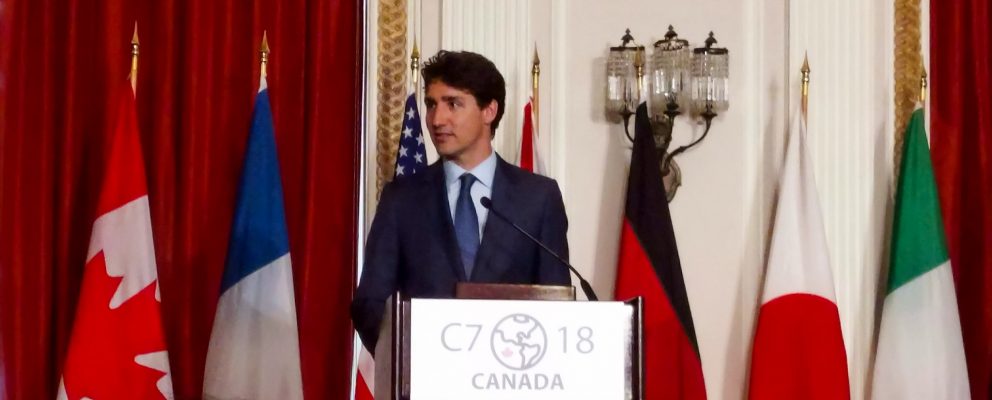
Insights from the C7: ‘If everyone agreed, we wouldn’t need a G7’
Do you ever wonder what it would be like to attend a mini-G7 summit with representatives from all seven countries and even the Prime Minister himself?
If civil society even matters to the mighty nations that often seem to only care about trade and the economy? What about the G7 itself – how does it work and how do countries even begin to negotiate on hot topics where no one seems to agree? I recently attended the C7 summit with EWB Canada and am pleased to share what I learned.
While the G7 Summit may take all the spotlight, there are several other mini-summits held in advance, including the Business7, Civil7, Think Thank7, Women’s7, Youth7, and Labour7. Each of these summits allows experts to advocate for policy changes and gives them a platform to hold governments accountable for their pledges.
The summit I attended, the Civil7, was established in Okinawa in 2000 and aims to strengthen dialogue between G7 governments and civil society. Non-governmental organizations have a close relationship with their constituents and do essential work improving lives domestically and internationally. G7 member states recognize this unique relationship and are eager to engage and learn from the experience of NGOs.
This year, the Canadian government met with Canadian civil society organizations and shared their insights with other G7 countries which carried out their own consultations. The goal was to establish common concerns across all member states and to come up with effective responses. This goal is a step in the right direction and will continue to improve with France pledging to continue this work when they take on the G7 presidency next year!
The relationship between civil society and the G7 may be bright right now, but not all relationships and issues within the G7 are seen in this light. Peter Boehm, Canada’s top G7 negotiator (commonly called a Sherpa), commented that “if everyone agreed, then there would be no need to have a summit at all.”
The G7 provides leaders with a platform to have frank discussions – they may not wholly agree on an issue, but they can at least move the dial a little closer in the right direction.
This point is something that really stuck with me.
It is a common misconception that G7 leaders solve decades-old issues through a single meeting – this is not the case. Many of these issues are so complex and so polarizing that it takes years to reach a solution. As Boehm said, it is of vital importance to find common ground, and at the very least move the issue forward when a solution is not possible.
The G7 summit in Charlevoix demonstrates this. Despite all the press coverage around “you know who” and his decision to not sign the joint communique, there were many positives to take away from this summit. Five of the seven leaders signed onto a plastics charter to eradicate plastics pollution. While non-binding, this is still a step in the right direction and will hopefully set the stage for other countries to follow suit. It has moved the dial forward and can now be built upon at future G7 meetings. The same could be said for girls’ education, where four member countries, the European Union, and the World Bank committed $3.8 billion for girls’ education in conflict-affected and fragile states.
Although the G7 process isn’t perfect, it is vital to solving the many issues that plague our planet. Actions taken almost never completely solve a problem, but what they do accomplish is a positive step forward.
Learn More
Read our top 5 takeaways from the G7 summit!
